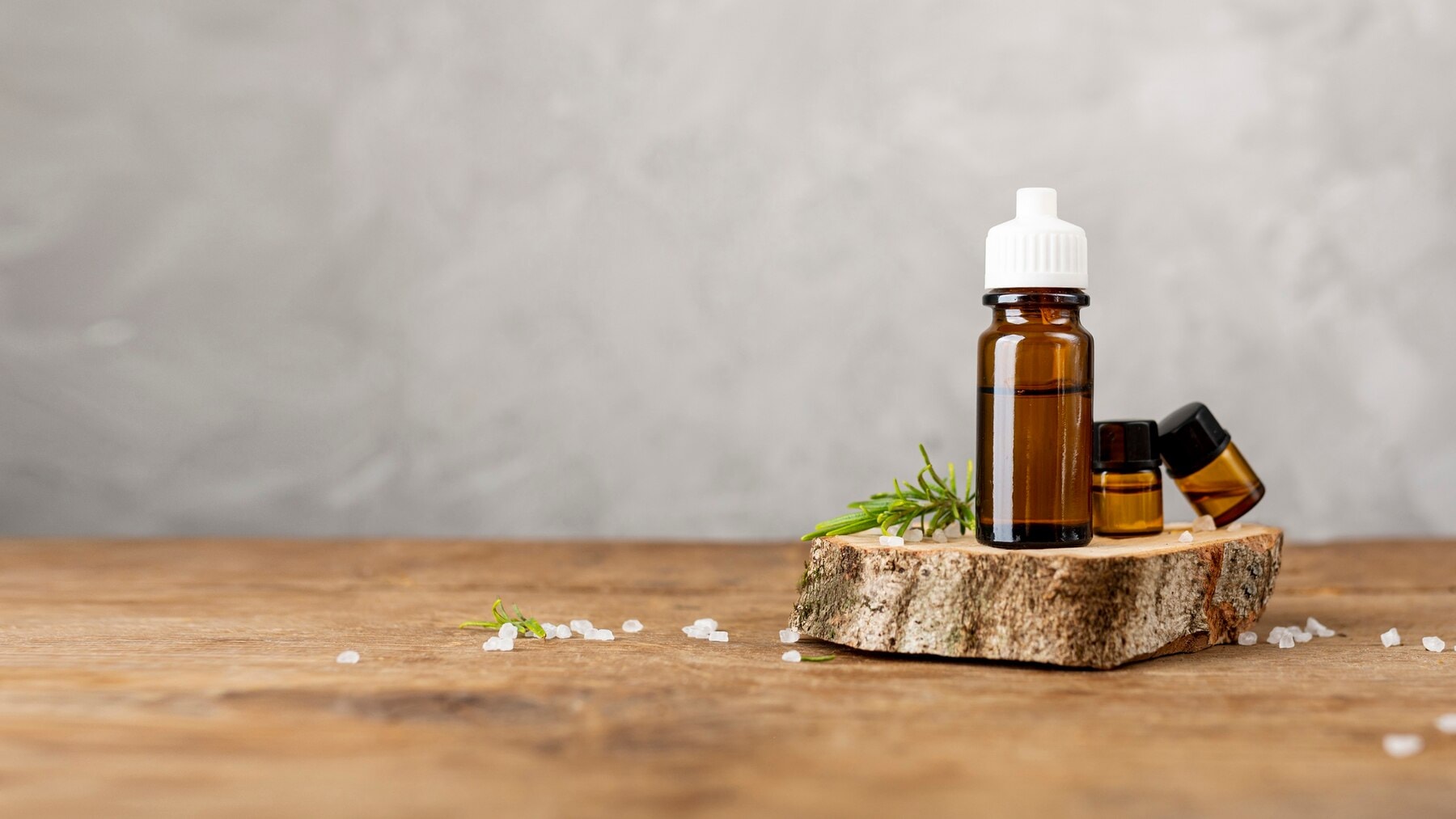
Our Blog
Beware of "How to Apply Essential Oils for Tinnitus"
Essential oils are concentrated liquids extracted from plants or fruits widely used for medicinal purposes. These oils contain aromatic compounds for their therapeutic properties and have been around for centuries, tracing their use back to traditional Chinese medicine.
When used as a fragrance or to moisturize the skin, essential oils are considered cosmetics. However, they become classified as drugs if marketed as herbal remedies for treating specific health conditions. Canada monitors herbal oils under NHP (natural health product) regulations due to their generally low-risk nature, rather than as prescription drugs. While meant to be generally safe, these NHP regulations ensure they are effective and safely tested.

After wondering “How long does tinnitus last after ear wax removal“ for some time, some people may start to consider essential oils as a potential treatment for tinnitus. While there may be some health benefits, improper use can be hazardous to your hearing health. This article investigates the efficacy of essential oils for tinnitus, exploring both their potential benefits and the necessary precautions for safe and effective use.
Are Essential Oils Safe for Tinnitus?
Little to no clinical evidence proves that essential oils treat tinnitus and other ear health problems like hearing loss or ear infections. While some users may report experiencing relief from tinnitus symptoms after using essential oils, there is currently no scientific evidence to support it.
A tinnitus audiologist or healthcare professional generally will not recommend essential oils to cure tinnitus. This is mainly because tinnitus has complex symptoms and can be caused by various underlying conditions. Improper applications can lead to adverse reactions and further complications.
Which Essential Oils Are Claimed to Be Effective?
Some essential oils work with tinnitus symptoms by providing relaxation, comfort, and temporary relief. Science currently has not made a list of the best essential oils for tinnitus. However, certain oils may be helpful for tinnitus improvement by offering relaxation, such as the following:
Lavender essential oil. Lavender oil is often used for its calming and soothing effects. It may help reduce stress and anxiety, which can contribute to tinnitus symptoms.
Helichrysum essential oil. Said to have anti-inflammatory and pain-relieving properties. This claims to repair blood vessels and nerves to drain fluid and relieve pressure causing the tinnitus symptoms.
Peppermint oil. Known for its cooling and refreshing properties, peppermint essential oils may help reduce inflammation and improve blood circulation.
Tea tree oil. This oil has natural antiseptic properties and may help reduce inflammation in the ear canal.
Basil essential oil. Basil oil is believed to have anti-inflammatory properties and may help improve blood circulation.
Eucalyptus oil: Eucalyptus essential oil is known for its decongestant properties and may help alleviate ear pressure.
Rosemary essential oil: This is believed to improve blood circulation and cognitive function.
Lemon balm oil: This may help reduce anxiety and stress.
Petitgrain oil: This oil may help reduce anxiety and promote relaxation.
Cypress oil: This is believed to improve blood circulation and lymphatic drainage.
How to Properly Use Essential Oils
If you decide to try using essential oils to manage tinnitus symptoms, observe safe and responsible use. Here are some guidelines.
1. Dilute with a Carrier Oil.
Essential oils are highly concentrated and can irritate your skin. Carrier oils should dilute essential oils before they touch the skin. Common carrier oils include coconut oil, sweet almond oil, olive oil, or grapeseed oil.
2. Choose the Right Oils.
When considering essential oils for tinnitus, select those known for their soothing properties. Natural essential oils derived from plants often contain compounds that can have a relaxing effect on the nervous system. Popular soothing essential oils that claim to help with sensorineural hearing loss are lavender, geranium, and cajeput oil.
3. Apply Topically.
Mix a few drops of the essential oil with a carrier oil and apply topically. Gently massage the mixture behind your ears or on your temples. Avoid applying the oils directly to your ear canal, as this can irritate your sensitive mucous membranes.
4. Use with Caution.
Use essential oil with caution. Conduct a patch test on a small area of your skin to check for allergic reactions. Pregnant or nursing women should avoid using essential oils unless advised by a healthcare professional.
5. Combine with Other Therapies.
While essential oils may provide some relief, they are often used with other tinnitus management techniques. For instance, consider combining essential oil with tinnitus retraining therapy (TRT), hearing aids, or deep breathing exercises.
How These Oils Are Believed to Work
The mechanisms by which essential oils work for tinnitus relief are often based on anecdotal evidence and traditional practices. Many of these oils are known for their calming and soothing properties, which may help reduce stress and anxiety, both of which can exacerbate tinnitus symptoms.
If we were to explain it scientifically, here’s how essential oil use works with tinnitus relief:
Olfactory System: When inhaled, the olfactory receptors in the nose detect the scent molecules of the essential oil. These receptors send signals to the brain, which can influence mood, emotions, and physiological responses.
Skin Absorption: When applied topically, the skin absorbs the oil and enters the bloodstream. Once in the bloodstream, they can interact with various body systems and potentially affect physiological processes.
Cellular Interactions: Some components of essential oils are believed to interact with cells and their receptors, potentially influencing cellular function and signaling pathways.
The essential oil’s soothing effects technically target the central nervous system, which influences how we perceive tinnitus sounds. When stress and anxiety are reduced, the brain’s focus on the perceived sound of tinnitus may diminish, leading to a potential decrease in its perceived intensity or frequency.
Additionally, some essential oils may have specific properties that can directly influence the auditory system. For example, certain compounds found in essential oils may help to regulate the activity of nerve cells in the inner ear.
Cautions and Side Effects
Before using essential oils for tinnitus, consult your audiologist or healthcare provider. Let Bloor Hearing Clinic in Toronto help. They can assess your situation, determine if essential oils are appropriate for you, and provide personalized guidance.
Avoid overuse. Excessive application of essential oils can lead to skin irritation or other adverse reactions. Use them in moderation and discontinue use immediately if you experience any negative effects.
Store essential oils properly in a cool, dark place away from direct sunlight.
Never apply essential oils directly to the ear canal. The ear canal is a delicate and sensitive part of the body, and introducing foreign substances can lead to irritation, inflammation, or even ear infections.
If you suspect earwax buildup is causing your tinnitus, the best way to address it is to consult with an audiologist. Visit our ear cleaning service for safe and effective wax removal, which can often provide significant relief from the ringing or buzzing sounds associated with tinnitus.
Potential Side Effects
Essential oils are generally considered safe when used correctly. However, like any other alternative therapies, they can cause side effects in some users. These side effects may include:
Skin irritation: Applying essential oils to the skin without diluting them with a carrier oil can lead to rashes, redness, or burning sensations.
Headaches: Some people may experience headaches after inhaling or applying essential oils.
Asthma: Essential oils can trigger allergic reactions or asthma attacks.
Dizziness or nausea: Inhaling excessive amounts of essential oils can sometimes lead to dizziness or nausea.
Affects effectiveness of medications: How well some medications work can be affected by the use of essential oils, and may even cause side effects.
The Risk of Hearing Damage
Improper use of essential oils can potentially lead to hearing damage. Direct application to the ear canal can irritate the delicate tissues and potentially lead to inflammation, infection, or even damage to the eardrum. Similarly, overusing essential oils can cause irritation and inflammation, such as in the case of a sinus infection causing tinnitus, affecting hearing sensitivity.
Essential oils are very strong and should never be used alone. Using them without diluting them can irritate your skin and sometimes even be harmful. Moreover, these oils are not meant to be taken orally or swallowed unless prescribed by a qualified healthcare provider.
Wrap Up
The goal of using essential oils for tinnitus is to find relief and some level of comfort from its annoying symptoms. If you’re really curious about how it helps with tinnitus, ask your audiologist and follow these guidelines for using essential oils responsibly to minimize the risks and potentially maximize health benefits.
